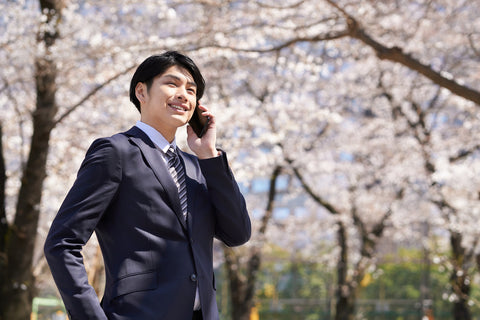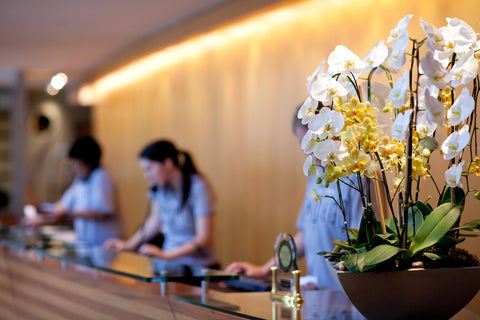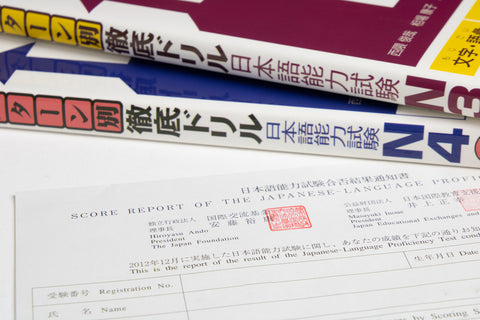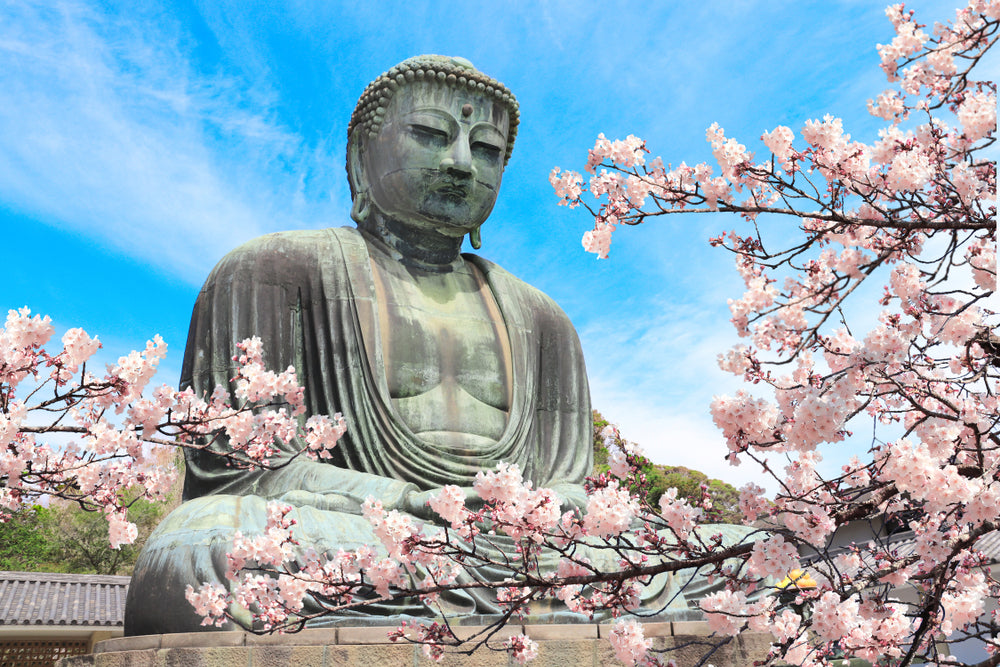Navigating the Job Market: A Guide to Job Hunting in Japan
Introduction: Understanding Job Hunting in Japan

The job hunting landscape in Japan presents a fascinating journey influenced by a blend of distinct cultural norms, economic factors, and evolving industry trends. With an emphasis on lifelong dedication to a single company and a work culture that prioritizes harmony and collective effort, navigating the work environment in Japan requires a deep understanding of its intricacies. Whether you're a native or a foreigner, job hunters must grasp these unique aspects and culture norms to successfully navigate the country's complex job market.
The Job Hunting Calendar: Timing Your Search

In Japan, the job hunting season is not just a routine process; it's deeply ingrained in the cultural fabric and societal norms of the country. Traditionally, starting in fall and peaking in early spring, this period aligns with the academic calendar, as many Japanese students graduate from universities in March and find work shortly thereafter. Known as "shukatsu" in Japanese, this season involves structured activities like career fairs, company sessions in job fairs, and interviews, as students and job seekers rigorously pursue opportunities.
For the best chance at finding jobs in Japan, aim to start your search in March April. However, if you miss this window, don't fret! While less common than spring hiring, some companies, especially smaller business and startups, also hire people during the fall to fill their staffing needs.
Popular Industries: Where to Find Job Demand in Japan

In response to technological advancements and globalization, Japanese companies are adopting new employment models, such as part time and contract-based arrangements, and actively recruiting English speakers. Here are popular industries in Japan with a high demand for workers:
-
Technology: The tech industry in Japan is flourishing due to continuous innovation and digital transformation efforts. This has led to high demand for many jobs in the IT industry.
-
Education and ESL Teaching: One of the most sought-after positions for non Japanese speakers is in ESL teaching, reflecting Japan's emphasis on globalization and English proficiency. Language schools, international institutions, and private tutoring centers consistently seek qualified ESL instructors to teach English to students, from young learners to adults. With a focus on the English language, this is the best job for many foreigners seeking entry into Japan's job market.
-
Healthcare: The rapidly aging population in Japan has resulted in a heightened demand for medical professionals and jobs focused in eldercare, prompting hospitals to hire foreigners to address the market's needs.
-
Hospitality: The thriving hospitality sector in Japan, benefits from its booming tourism industry and reputation for exceptional service, resulting in the active search for skilled workers in hospitality management, customer service, and tourism marketing. Given the cultural and natural attractions of Japan, becoming a tour guide in the country can be an appealing prospect, wouldn't you agree?
Crafting the Perfect Japanese Resume (Rirekisho)

Creating a Japanese-style resume, known as "rirekisho", requires attention to detail and adherence to specific formatting guidelines. Here's a step-by-step guide, as well as tips, to help you craft an impressive resume that is sure to leave a strong impression on potential employers:
-
Follow the standard format (A4 paper) for the resume and use legible fonts such as Arial or Times New Roman, with font size ranging from 10-12 points.
-
Fill out the resume. It typically includes the following sections:
-
Personal Information
-
3x4 ID Photo
-
Career Summary
-
Education Background
-
Work Experience
-
Skills and Qualifications: Highlight relevant skills, certifications, language proficiency, and any other qualifications that are pertinent to the job you're applying for
-
References
-
-
Use formal and polite language throughout your resume.
-
Keep your resume concise and relevant to the job you're applying for and tailor the content to match the requirements of the position.
-
Ensure that your resume is well-organized and visually appealing. Use bullet points to list responsibilities and achievements for easy readability and avoid cluttered formatting and excessive use of bold or italicized text.
-
Double-check your resume for any spelling or grammatical errors. Attention to detail is crucial, as even minor mistakes can leave a negative impression on recruiters.
Mastering the Job Interview in Japan

Succeeding in Japanese job interviews requires preparation, cultural awareness, and effective communication of one's strengths.
Prior to the interview, it's crucial to conduct a comprehensive research on the company's background, culture, and values, including their offerings, recent developments, and noteworthy accomplishments of the company. Japanese interviews typically adhere to a formal protocol, emphasizing respect, humility, and courtesy. Dress in conservative business attire, arrive punctually, and greet everyone with a bow.
When you answer questions during the interview, aim for concise and sincere answers that showcase your skills, experiences, and alignment with the values of the company. Common interview questions include "Tell me about yourself", "Why do you want to work for this company?" and "What are your strengths and weaknesses?" Highlight your readiness to assimilate into Japanese work culture by emphasizing your willingness to learn, adapt, and contribute to the success of the company. Post interview, express gratitude with a handwritten thank-you note or email, reiterating your interest and enthusiasm for the position.
Language Skills: The Role of Japanese Proficiency in Job Hunting

In the Japanese job market, the level of language proficiency required varies depending on the nature of the job and the specific requirements of the company. Here's a general overview of the levels of language proficiency typically expected for different types of jobs in Japan:
Basic Proficiency (JLPT N5-N4):
Entails basic understanding of Japanese grammar and vocabulary and ability to engage in simple conversations.
Jobs: Entry level positions, part time jobs, and internships across industries like retail, hospitality, and tourism.
Conversational Proficiency (JLPT N3):
Denotes the capability to engage in everyday conversations in Japanese, and read and write basic texts.
Jobs: Entry level positions in office work, administrative support roles, and teaching assistantships.
Business Proficiency (JLPT N2):
Signifies the ability to communicate effectively in Japanese in the business level, including comprehending complex information, negotiating and presenting ideas, and engaging in professional correspondence.
Jobs: Professional roles, marketing and sales positions, and administrative jobs.
Advanced Proficiency (JLPT N1):
Indicates fluency at the native level in Japanese and the capability to comprehend and produce complex texts, participate in meetings and discussions, and convey nuanced ideas accurately.
Jobs: Executive-level positions, leadership roles, and specialized positions in fields such as law, finance, and engineering
While these serve as general guidelines, the specific language proficiency prerequisites can differ based on the industry, company culture, and job responsibilities. Should you feel uncertain about your language skills, there's no need to fret! A plethora of resources exist for language learning, tailored to learners of various levels. These include language institutions, private tutoring sessions, and language exchange programs, both within and outside of Japan. Moreover, an abundance of self-study materials are accessible, both online and in physical forms.
Work Culture in Japan: What to Expect

Foreigners aiming to find jobs in Japan must grasp the intricacies of Japanese work culture, as it significantly influences the working environment of many companies in the country. This culture transcends mere workplace practices, encompassing fundamental values and expectations that mold daily interactions and career trajectories. Here are pivotal aspects of Japanese work culture that foreigners should acquaint themselves with:
Long Working Hours: Japanese companies are renowned for their dedication to work, often resulting in extended working hours exceeding the standard 40-hour workweek. Overtime work is common, with employees frequently required to work late or even on weekends to fulfill job responsibilities.
Group Dynamics: In Japanese work culture, harmony and cooperation within the group take precedence, with decision-making emphasizing consensus-building and collective input over individual autonomy.
Communication Styles: Indirectness and implicitness are common in Japanese communication, with an emphasis on non-verbal cues and context. Foreigners seeking jobs in Japan should pay close attention to subtle signals like body language, tone of voice, and facial expressions to discern the underlying meaning of conversations.
Visa Considerations: Securing the Right to Work

For foreigners seeking jobs in Japan, the country provides a range of work visas tailored to different job roles and situations, each with specific eligibility criteria and application requirements. Here's a comprehensive overview of the visa process, outlining the minimum requirements for those seeking to find jobs in Japan:
Types of Work Visas:
-
Engineer/Specialist in Humanities Visa: Suitable for individuals engaged in specialized fields such engineering, natural sciences, humanities, or international services.
-
Intra-Company Transferee Visa: Reserved for employees relocated to Japan by their overseas employers to work at a Japanese branch or subsidiary.
-
Skilled Labor Visa: Designed for skilled workers with expertise in specific industries such as construction, manufacturing, healthcare, and hospitality.
-
Highly Skilled Foreign Professional Visa: Designated for exceptionally talented individuals, including accomplished professionals, entrepreneurs, and researchers, who possess exceptional skills and expertise.
Documentation Required:
-
Valid Passport
-
Certificate of Eligibility (COE)
-
Employment Contract or Offer Letter
-
Educational and Professional Credentials
-
Financial Documentation
-
Passport-sized Photographs
-
Visa Application Form
After identifying your visa type, obtain a Certificate of Eligibility (COE) from the Japanese immigration to confirm eligibility. Compile all necessary documents and submit your visa application to the nearest Japanese embassy or consulate in your home country. Processing times vary depending on the visa category. Upon approval, you can now travel to Japan and commence your job!
Networking and Job Fairs: Connecting with Employers

Personal connections and referrals play a significant role in the hiring process of Japanese companies . In Japan, job openings are often filled through word-of-mouth referrals and job fairs, rather than public advertisements. Job fairs provide attendees with the chance to interact directly with recruiters and company representatives, and gain insights into industry trends, company culture, and hiring practices.
By actively engaging with professionals, connecting with potential employers, and gathering valuable insights in job fairs, job seekers can increase their chances of finding rewarding career opportunities and advancing their professional goals in Japan.
Utilizing Job Search Platforms and Recruitment Agencies

Utilizing job search platforms and recruitment agencies can significantly expedite the job search in Japan, providing access to a wide range of job opportunities across various industries within the country. Job search platforms like GaijinPot and Daijob, are known for their extensive database of job postings for non Japanese speakers. On the other hand, Hays Japan and En World Japan are some of the prominent recruitment agencies that assist both Japanese and foreign job seekers in finding suitable job opportunities in the country.
The Role of Internships: Gaining Experience in Japan

Internships offer invaluable opportunities for gaining work experience and potentially securing full time positions in Japan. They provide practical skills and industry-specific knowledge beyond academic coursework and facilitate networking within the industry. Many companies in Japan utilize internships as a talent acquisition strategy to identify candidates for future employment opportunities.
Success Stories: Foreigners Who Found Careers in Japan

Alex Kerr, an American author and Japanologist, moved to Japan in the 1970s and devoted himself to learning Japanese and the country's culture. His proficiency in Japanese opened doors for him in Japan's academic and cultural circles and helped him build connections with Japanese scholars and experts in various fields. Through his deep knowledge of Japan and his ability to bridge cultural gaps, Kerr became a sought-after consultant, lecturer, and author. Notably, his book "Lost Japan" garnered critical acclaim and earned him recognition both domestically and internationally. Another success story is Christ Broad, known online as Abroad in Japan, a British content creator who found success by documenting his experiences in Japan. Initially joining the JET Programme as an assistant language teacher in Sakata, Yamakata, he later transitioned to become a full-time Youtuber after three years.
The success stories of individuals like Alex Kerr and Chris Broad exemplify the diverse pathways available to foreigners seeking employment in Japan. Whether through academia, cultural exchange programs, entrepreneurship, or digital platforms, they have navigated the complexities of the Japanese market and achieved remarkable success. Their experiences serve as an inspiration for others aspiring to pursue their professional goals in Japan, highlighting the importance of adaptability, perseverance, and deep appreciation for Japanese culture.
Legal Rights and Support Services for Foreign Workers

Foreign workers in Japan are entitled to certain legal rights and protections under Japanese labor laws. These rights encompass equal treatment with Japanese employees concerning wages, working hours, and working conditions, as well as provisions for health and safety standards, employment contracts and social insurance. Additionally, various support services are available to assist foreigners in navigating the job market and workplace in Japanese. These resources include labor unions and nonprofit organizations, offering aid with legal matters, labor disputes, and interpretation services.
Preparing for the Move: Relocation Tips for Job Seekers

Once you've secured your work visa and are preparing to relocate to Japan for employment, here are some practical tips to facilitate a smooth transition:
-
Begin your accommodation search well in advance and consider factors like location, proximity to your job site, and transportation options.
-
Develop a budget based on your annual salary to effectively manage your finances. Upon arrival in Japan, set up a local bank account to facilitate financial transactions and payments.
-
While not mandatory, learning Japanese can significantly enhance your experience living and working Japan. Take advantage of language classes and online resources to improve your language skills.
-
Take the time to learn about Japanese culture, including greetings, dining etiquette, and workplace customs.

In conclusion, navigating the job market in Japan can be a rewarding yet challenging endeavor for both local and foreign job seekers. Understanding the unique aspects of Japanese work culture and familiarizing oneself with the job hunting process are crucial steps in securing a job in Japan. With perseverance, adaptability, and a proactive approach, anyone can unlock exciting career prospects and embark on a fulfilling journey in Japan.
As you embark on your exciting journey with a new job in Japan, why not elevate your celebration with a thoughtfully curated gift from Bokssu Boutique? Discover our Congratulations Gifts collection, featuring boxes filled with handpicked snacks and sweets sourced directly from artisanal makers across Japan. Share the joy with your co-workers as you savor each delectable treat together.
Author Bio








 Bokksu Snack Box
Bokksu Snack Box

























